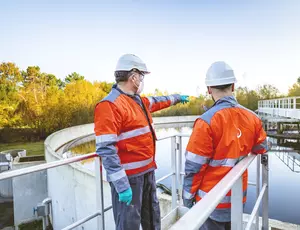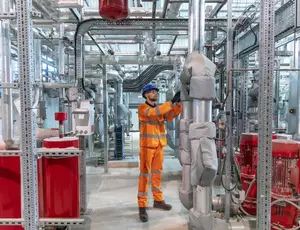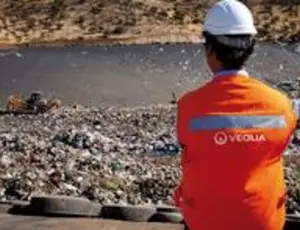
From Compagnie Générale des Eaux to Veolia
Watch the video presenting the key milestones in the history of the Veolia Group.
3 businesses activity:
Water, Waste, Energy
€44.692 billion Revenue in 2024
218,000 employees
Worldwide in 2024

Water
• 111 million people supplied with drinking water
• 98 million people connected to wastewater treatment systems
• Management of 3,809 drinking water production plants
• Management of 3,222 wastewater treatment plants

Energy
• Management of 48,745 heating plants
• Production of 42 million MWh of energy
• Management of 708 heating and cooling networks
• Management of 2,118 industrial sites

Waste management
• 63 million metric tons of waste recycled
• 562,828 business customers
• 43 million people served through waste collection services on behalf of municipalities
• Management of 865 waste recycling facilities


